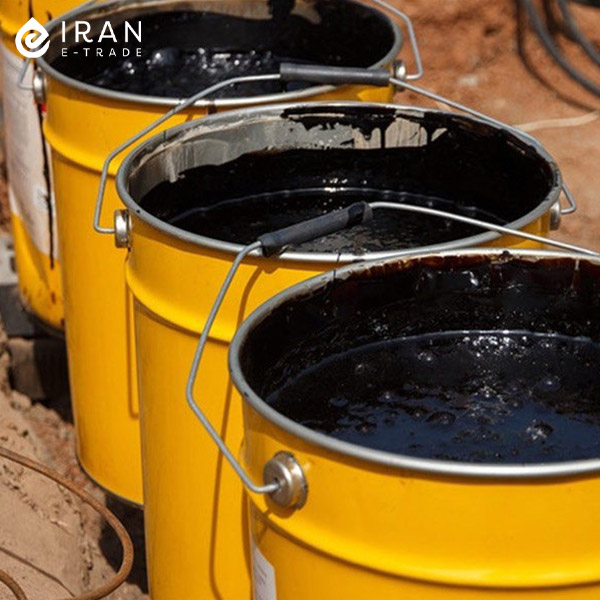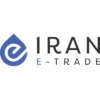Bitumen Export: bitumen supply and export current price
Given that road construction is a part of the infrastructure sector in any country, petroleum products used in road construction are very important. One of these products is bitumen. Bitumen has many uses in the road construction industry for building roads. Also, bitumen is widely used in buildings for making roof insulators. Therefore, bitumen is a widely used substance in the world and because of its wide usage, the production of export bitumen in Iran has increased since the demand for it is high. But do you know what the types of exported bitumen are? Or which countries does Iran export bitumen to? Stay with us as we explain more about bitumen export and bitumen export price in this article.
What is bitumen export?
As we explained in the previous paragraph, bitumen is a widely used substance in the world. Therefore, it is natural for different countries to use bitumen for road and house construction. As a result, countries that can produce bitumen can make billions of profits by selling it to other countries.
Therefore, exported bitumen is bitumen that bitumen exporting countries export to other countries. Iran is also one of the largest producers of bitumen in the Middle East. If you are interested in knowing bitumen export prices, you can visit the IranETrade website.

What are the types of bitumen export?
Bitumen is generally produced through various processes. As a result, these different processes also produce a variety of bitumen products. In Iran, various bitumen products are exported to other countries. For example, one of them is petroleum bitumen, which is obtained by distilling petroleum.
Another type of bitumen is natural bitumen which exists in the earth’s natural resources. Also, there is blown bitumen, which bitumen manufacturers produce by blowing air into bitumen at high temperatures.
Other bitumen products are cutback and emulsion bitumen, which are produced by mixing bitumen with solvents and applying the emulsion process to bitumen. If you are interested in knowing the bitumen export price for each of these types of bitumen, you can contact the IranEtrade bitumen export group.
For more information about emulsion bitumen, refer to What is Bitumen Emulsion .

Types of penetration-grade bitumen
The penetration grade of bitumen refers to the hardness of the bitumen, which experts evaluate using a laboratory testing process. There, they grade the bitumen based on its hardness. Different grades of bitumen have varied features, and their applications are also different.
Among the bitumen products, penetration-grade bitumen is among the most popular. One of the most common types of bitumen grading is bitumen 60/70. This bitumen is a good choice for covering roads.
(Click to read more about types of bitumen.)
The price of export bitumen 60/70 varies depending on its manufacturer and the fluctuations in the price of petroleum. Bitumen 60/90 is another type of bitumen that is mostly used for producing hot asphalt mix for roads.
Bitumen 60/90 manufacturers determine their bitumen 60/90 price, which varies according to the price of petroleum. Bitumen 85/100, like bitumen 60/90, is also used to produce hot asphalt mix.
Furthermore, road builders use it to build road bases. Another type is bitumen 50/70 which is mainly used in the production of bituminous mixtures for the construction of road surfaces, airport runways, sidewalks, race tracks, and landing platforms.
Bitumen 80/100 also has a similar application to bitumen 85/100, the main use of which is the production of hot asphalt. To find out more about bitumen export price for 60/70, 50/70, 85/100, and 80/100 grades, contact IranETrade company.

Which countries produce the largest amounts of bitumen?
Bitumen is one of the highest-selling products in the world. Therefore, many countries buy and sell bitumen. According to the 2016 data, China produced 2 billion and 17 million tons of bitumen, which makes it the largest producer of bitumen in the world.
(Click to find out about the online bitumen price.)
After China, the United States, with an annual production of 1 billion and 97 million tons of bitumen, ranks second in terms of producing the highest amounts of bitumen.
After the United States, Russia and India are ranked in the 3rd and 4th place, with the production of more than 76 and 51 million tons of bitumen, respectively. In fifth place is South Korea, which produces 50 million tons of bitumen annually.
After South Korea, Iran, with the production of more than 48 million tons of bitumen per year, ranks sixth among the largest producers of bitumen in the world. If you are interested in obtaining information about how to buy bitumen, you can visit the IranETrade website to find out more about the bitumen export price.

Who imports bitumen?
After China, India and France are the countries with the import value estimated to be 1.2 billion and 559 million dollars, respectively. Following these two, Indonesia is ranked in the 5th place, with its bitumen import value of 522 million dollars in 2022.
In the previous section, we talked about which are the largest bitumen producing countries. But what about the countries that import the highest amounts of bitumen? The countries that produce the largest amounts of bitumen are also the major importers and consumers of it.
For example, the United States imported about 3 billion dollars worth of bitumen in 2022. This amount makes the United States the number one country among the largest bitumen consumers, and this is due to the extensive road infrastructure in this country.
As a result, the United States needs large amounts of bitumen for its roads’ construction and repair. After the United States, China ranks second in terms of the highest bitumen import, and the value of its bitumen imports in 2022 is estimated to be about 1.5 billion dollars.
China is also a large country, and due to urbanization and its infrastructure construction, its need for bitumen is increasing day by day. If you want to know more about the bitumen export price, you can contact the Iran ETrade company.

Which country exports bitumen?
According to bitumen export 2021 data, Canada ranked first in bitumen exports, with its exports worth 1.29 billion dollars. Following Canada, Singapore had the second position in terms of the largest exporter of bitumen with an export value of 1.11 billion dollars.
Greece was in the third position, exporting more than 1 billion dollars of bitumen in 2021. The United Arab Emirates was in the fourth position, with the value of bitumen exporters in uae reaching 981 million dollars in 2021.
After the UAE, South Korea was in fifth position with 913 million dollars of bitumen exports. However, please note that these data on bitumen export by country were taken in 2021 and the ranks of top bitumen exporting countries may differ in the following years.
If you are interested in buying bitumen, you can contact IranETrade company to learn more about the bitumen export price per ton. Iran ships bitumen export to which countries?
Iran ships bitumen export to which countries?
Iran exports its bitumen to various countries. The bitumen products are usually packaged in barrels, bulk or bags and are shipped via containers through sea routes to their destinations.
The bitumen trade is one of the largest global businesses in the world. Of course, in many countries, the term bitumen is used interchangeably with asphalt. Iran E-Trade is a specialized wholesale supplier of bitumen export, where you can get the best prices for bitumen.
Iran is one of the major players in the field of bitumen exports in the world. Its’ largest bitumen importers are countries such as China, India, various African nations, Uzbekistan, Turkmenistan, Turkey, Georgia, Armenia, etc.
For more information about soluble bitumen, refer to Oxidized Bitumen refer to What is Oxidized or Blown bitumen?

What are the statistics of Iran’s bitumen export?
Iran’s export statistics in the past year have shown that the exports of oil products have declined relatively. However, bitumen exports have maintained a favorable status in 2022-2023. During early to mid-2023, bitumen exports increased by 14% compared to 2022. Iran is one of the major producers of natural export bitumen. For purchasing large supplies and pricing of bitumen, you can get in touch with Iran E-Trade Inc.

What is the importance of bitumen export?
The bitumen trade is an important and profitable business worldwide, and countries that produce export bitumen or gilsonite benefit significantly from this trade. However, bitumen exports are essential for multiple reasons, including economic, industrial, and developmental aspects. In this section, we will provide further explanations regarding the conditions of bitumen exports and their importance.

The economic importance of bitumen export
Exporting bitumen can be a source of foreign exchange earnings for countries. Furthermore, increasing exports of non-oil products, including bitumen export, can diversify the export sector and reduce the countries’ dependence on crude oil exports. Additionally, processing crude oil into valuable products like bitumen export can create higher added value compared to selling crude oil.

The industrial importance of bitumen export
One benefit of exporting bitumen is that it can contribute to the development of downstream industries related to oil and petrochemical products, leading to job creation and increased technical expertise within each country. Additionally, competing in the global bitumen export market compels companies to use more advanced technologies, resulting in improved production processes.

The importance of bitumen export in improving infrastructure
Exporting bitumen can play a significant role in developing transportation infrastructure, including ports, roads, and railways. This can lead to overall improvements in a country’s infrastructure and facilitate trade.
Additionally, countries that export bitumen aim to improve the quality of their products to maintain their position in global markets. As a result, bitumen exports also contribute to upgrading domestic production systems and enhancing the credibility of each country’s products in international markets.

Which grades of bitumen are suitable for export?
Buying and selling export bitumen is one of Iran’s most important trades. But which grades of bitumen comprise the majority of bitumen exports? The most commonly exported bitumen grades include 60/70 and 85/100, which are widely used in road construction and civil infrastructure.
Among these, 60/70 bitumen is suitable for colder climates and has high flexibility. Conversely, 85/100 bitumen is better suited for use in warmer climates and offers excellent resistance to wear. For moderate weather conditions, bulk sale of 70/100 export bitumen is usually the best choice.
Overall, the bulk export of bitumen depends on the general conditions of the destination country, the type of export bitumen, and customers; needs. If you’re interested in purchasing and pricing export bitumen in bulk, you can get in touch with Iran E-Trade Inc.

What conditions should bitumen export have?
When it comes to bitumen export, several factors need to be considered, some of which we will explain in this section.

The quality of bitumen
When exporting bitumen, it’s crucial to ensure that the product meets international standards for its physical and chemical properties. These standards are set by organizations such as ASTM and ISO. Key quality aspects to consider for bitumen export include:
1. Penetration Grade: This measures the softness and flexibility of bitumen. Exported bitumen is typically classified as penetration grade bitumen 60/70, 85/100, or 130/150.
2. Softening Point: This indicates the temperature at which bitumen becomes liquid. Exported bitumen products usually have a softening point above 50 degrees Celsius.
3. Adhesion: This assesses the ability of bitumen to stick to asphalt aggregates. Exported bitumen should demonstrate sufficient adhesion.

Bitumen’s purity
One of the conditions for bitumen export is its purity. In fact, the bitumen selected for export should not contain water, soil, or other organic material. Any impurity in bitumen leads to a decrease in its quality and renders it unsuitable for use.

Bitumen’s packaging
Bitumen packaging is a crucial factor in bitumen exports. Proper packaging ensures that the cargo remains intact during transportation and prevents any damage. There are several methods for packaging exported bitumen, but the most common approach is bulk packaging, where large quantities of bitumen are prepared for export.

Customs’ declaration
To export bitumen, you must have a customs’ declaration. The customs declaration is an official document that provides information about the exported goods, including their type, value, weight, and the destination country. Also, a bitumen exporting company has to obtain the required licenses from Iran Mercantile Exchange.

Different types of bitumen packing for export
Naturally, when bitumen exporters in iran and other countries export bitumen, they use special packaging. Since bitumen is a sticky and flammable substance, it is important to use suitable packaging for its transportation.
This ensures that bitumen does not leak out of its container and also its properties will be preserved during transportation and storage. But do you know what the methods of packaging for bitumen export are?
Generally, there are a few common methods for this, which we will explain in this section. Meanwhile, if you are interested in buying bitumen, you can visit the IranETrade website to learn more about the bitumen export price.
For more information about Natural Bitumen refer to What is gilsonite bitumen + advantages!

1. Jambo packaging
Jambo packaging is one of the common methods for exporting bitumen. In this method, bitumen export companies put bitumen in large, multi-layered bags made of Polyalkene12.
The material of these bags is resistant to high temperatures and can even withstand up to 160 degrees Celsius. The capacity of Jambo packaging for transporting bitumen is between 500 to 2,000 kilograms.
Therefore, the features of Jambo packaging make it an efficient and low-cost method. If you are interested in buying bitumen, you can visit the IranETrade website to find out about the bitumen export price.

2. Bulk packaging
When large-scale construction projects need to produce significant amounts of asphalt, they need large amounts of bitumen. As a result, bitumen suppliers use the bulk packaging method for transporting and shipping bitumen.
In the bulk packaging method, bitumen suppliers load bitumen into ships and tankers at the refinery and deliver it at the destination port. The bulk packaging method, like Jambo packaging, is cost-effective and easy to transport.
If you are interested in buying export bitumen, you can contact the IranETrade company to find out more about the bitumen export price.

3. Drum packaging
Drum packaging is another common method for storing and transporting bitumen. In this method, bitumen suppliers store bitumen in cylindrical steel barrels that are resistant to heat and environmental conditions.
(Click to read more about Drum Bitumen.)
The drums that are used for transporting bitumen have different capacities and dimensions. For example, some of them can carry 150 kilograms and some up to 180 kilograms of bitumen.
The drum packaging method is popular due to its safety, preservation of bitumen quality, and ease of use. If you want to know more about the sale conditions of bitumen export and bitumen export price, you can visit the IranETrade website.

What are the important standards for exporting bitumen?
Standards related to bitumen exports are important to ensure the quality and performance of bitumen in various conditions. Bitumen manufacturers must adhere to these standards to ensure that their products are suitable for use in different applications.
International bitumen export is carried out in accordance with standards that specify the physical and chemical properties of bitumen. These standards are determined by international organizations such as ASTM and ISO. Some of the most important of these standards include:
– ASTM D 946 (PEN Grade): Bitumen classification based on the degree of penetration, softness, and flexibility of bitumen at different temperatures.
– ASTM D 2872 (VG Grade): Bitumen classification based on viscosity grade and resistance against flow.
– AASHTO M 320 (PG Grade): Bitumen classification based on its performance in different conditions (Performance Graded bitumen).
– ASTM D 4402: Determines the adhesion of bitumen.
– ASTM D 6923: Determines the tensile strength of bitumen.

What are the most important bitumen standards in Iran?
The Institute of Standards and Industrial Research of Iran (ISIRI) has developed several standards for bitumen export, which specify its physical and chemical properties. Companies involved in bitumen export must ensure that their products meet these standards to guarantee their quality and performance in different applications and conditions.

National standard of Iran number 2950
The 2950 standard for bitumen export determines its properties and classifies bitumen based on its degree of penetration. This standard is based on the ASTM D964 standard and considers the degree of penetration as a criterion for specifying the softness and flexibility of bitumen. Bitumen products with a higher degree of penetration are softer and more flexible, while those with a lower degree of penetration are harder and more brittle.

National standard of Iran number 12505
The 12505 standard classifies the properties of road construction bitumen based on their performance in different weather and environmental conditions. This standard aligns with the ASTM D 6927 standard for bitumen export products from Iran. According to the 12505 standard, bitumen products are divided into three general categories:
– Slow-curing bitumen: This type of bitumen becomes stiff at low temperatures and soft at high temperatures.
– Modified slow-curing bitumen: This bitumen is modified with additives to ensure its appropriate performance in different environmental conditions.
– Rapid-curing bitumen: This type of bitumen quickly hardens at low temperatures and is soft at high temperatures.

National standard for Iran number 12506
This standard for bitumen export determines the emulsion properties of bitumen and is in accordance with ASTM D 2397. The 12506 standard classifies bitumen based on the type of emulsifier and its physical properties. Bitumen products are divided into two groups based on this classification:
1. Cationic emulsion bitumen: This type of bitumen is emulsified with cationic additives.
2. Anionic emulsion bitumen: This bitumen is emulsified with anionic additives.

Other standards for bitumen export
In addition to the previously mentioned standards, bitumen exports must also comply with other specific standards. For instance, the IRISI 2962 standard is utilized to gauge the adhesion level of bitumen, while the IRISI 6923 standard measures the tensile strength of bitumen.
As a result, manufacturers need to ensure that their products align with these standards to guarantee their suitability for intended applications.

What certifications does exporting bitumen require?
To export bitumen, a company must obtain specific permits issued by the Iran Mercantile Exchange. These permits require the submission of documents, including a trade card confirming the right to import and export products, a company registration certificate, a bitumen export sales contract, and more. After reviewing these documents, the Iran Mercantile Exchange will issue the permit if they are approved.

Iran Mercantile Exchange permit for bitumen export
To obtain a bitumen export permit from Iran Mercantile Exchange, exporters must provide certain documents. These documents include the following items:
1. A valid trade card authorizing the exporting of bitumen.
2. A valid company registration certificate containing company information such as name, registration number, and address.
3. A bitumen standard certificate validating the quality of bitumen according to international standards such as ASTM and ISO.
4. A proforma invoice for purchasing bitumen, including details such as bitumen type, quantity, price, and delivery date.
5. A bitumen sales contract specifying the buyer’s name, bitumen’s quantity, price, and delivery date.
Once these documents are reviewed and approved by the Iran Mercantile Exchange, an export permit for bitumen will be issued. In this way, the exporter can carry out the exporting of bitumen.

The customs release permit for bitumen export
One crucial step in exporting bitumen is obtaining a customs release. Bitumen exporters are required to have a customs permit. This permit is an official document that contains information about the exported goods, such as type, quantity, value, and destination. Once this permit is issued, Iran Customs provides a release permit for the bitumen to leave customs.

Cargo insurance for bitumen export
When exporting bitumen, it is necessary to insure the shipment of bitumen export with cargo insurance. This insurance protects the goods against potential damages during transportation, such as damage from the sinking of the ship, fire, theft, and other risks. The cost of the insurance is determined based on the value and price of the exported bitumen, the transportation duration, and other relevant factors.

What is the process of exporting bitumen?
After gathering all the necessary documents and permits, the bitumen trader start exporting bitumen. The process for exporting bitumen is as follows:
1. Finding the target market: The bitumen exporter needs to identify the target market and consider its requirements.
2. Entering into a contract: Both the exporter and the buyer of the exported bitumen must finalize a contract that includes all the conditions related to the export of bitumen, such as its price, type, time and method of delivery, and payment terms.
3. Preparing the goods: The exported bitumen must meet the standards and conditions specified in the contract and be ready for shipping in appropriate and standard packaging.
4. Customs formalities: The bitumen exporter must follow the customs procedures, submit documents such as invoices, the sales contract of exported bitumen, certificate of origin, etc. to customs, and pay the relevant fees.
5. Shipping the goods: After completing the customs formalities, the exported bitumen is transported to the destination country through a suitable transportation company. The shipped goods must be insured during transportation.
6. Receiving payment: Once the goods are delivered to the destination, the buyer makes the payment according to the terms mentioned in the contract.
For more information about Performance Grade Bitumen refer to What is PG bitumen?

The method of performing bitumen export
Bitumen is typically exported in two ways: by land and by sea. Packaged bitumen, using jumbo bags and barrels, is usually transported to the destination country via sea routes in large containers. For land-based bitumen export, the bitumen is packaged in bulk and transported via tankers.

Iran’s rank in bitumen export
Based on statistics published by Iran’s customs, Iran was the 4th largest exporter of bitumen in the world in 2022. The country exported over 5.4 million tons of bitumen, valued at more than $1.5 billion. Iran also ranked 7th in the world for bitumen production, producing over 6 million tons in 2022.
Due to the high quality of Iran’s exported bitumen, many countries are interested in purchasing it. For more information on the price of Iran’s natural bitumen export and how to make a purchase, you can contact Iran E Trade Inc.

What is SGS certification in bitumen exports?
The SGS certificate refers to the SGS company, which is an international company specializing in the inspection, testing, and certifying of bitumen products for export. The SGS company has established an international network for its laboratories, through which it can conduct bitumen and asphalt tests for different countries.
If the bitumen exporters successfully pass these tests, the SGS company grants them the SGS certificate, which allows them to export their bitumen products to international markets.
Essentially, the purpose of granting the SGS certificate is to export bitumen products per national and international standards for bitumen production. If you are interested in knowing more about bitumen export price, please visit the IranETrade website.

THC costs in bitumen exports
THC (Terminal Handling Charges) fees are costs that terminal authorities in each port charge bitumen exporters for using the loading and unloading equipment for their bitumen cargoes. Generally, terminal transportation costs vary for each port in each country, as each country has its regulations and specific costs for THC.
Terminal Handling Charges are part of the total cost of bitumen export price, which includes access to bitumen, maintenance and repair of the unloading equipment, loading of bitumen, and their usage.

What are FOB and EXW in bitumen exports?
The concepts of FOB and EXW about bitumen exports relate to its transportation costs. FOB is an abbreviation for Free on Board. This concept in international trade means that the seller has fulfilled its obligations and responsibilities regarding the delivery of a commodity.
But in terms of bitumen export, FOB means that the seller must clear their goods for export and deliver them via ship at the designated port. Therefore, FOB is a concept that is used concerning the transportation and delivery of bitumen through ports and sea.
The FOB for bitumen export price has its specific regulations. For example, some companies that quote their bitumen export price based on FOB, no longer have to pay transportation costs or taxes and only pay the fees of delivering bitumen at the port.

EXW
EXW is an abbreviation for Ex Works and is an international trade term. Based on EXW, the exporters deliver their goods to a specific location. However, it is the buyer who is responsible for paying transportation costs, taxes, insurance, and any additional fees.
The same applies to exported bitumen. In terms of the bitumen export price, the concept of EXW means that the exporter is only responsible for delivering the bitumen at a specific location. However, it is the buyer who must bear the transportation fees, taxes and risks associated with transporting bitumen.

Which sea corridors are used for bitumen exports?
Previously, we mentioned that many bitumen exports are carried out via sea and delivered at commercial ports. Therefore, there are various sea corridors in different countries.
These sea routes are the main route for transporting bitumen goods exports between different countries through seas, and bitumen exporters send their exported bitumen to buyers’ countries through these sea corridors.
For example, the East Africa corridor is one of the sea corridors through which East African countries can receive exported bitumen through its ports. Another important sea corridor is the New International Land-Sea Trade Corridor, which is based in Chongqing, China.
This trade corridor is connected to 190 ports in 90 countries around the world. Also, Iran, with access to the Caspian Sea and the Persian Gulf, can use several sea corridors for its bitumen imports and exports.
If you are interested in buying bitumen, you can visit the IranETrade website to get information about bitumen export price per metric tonne.

Through which ports Iran exports its bitumen?
Since Iran has access to both the Caspian Sea in the north and the Persian Gulf and the Oman Sea in the south, it can export its bitumen to several ports. For example, Bandar Abbas in the Persian Gulf is an important point for Iran’s bitumen exports and imports.
On the other hand, Imam Khomeini Port in Mahshahr, Khuzestan, Bushehr port, and various ports in the Caspian Sea (like Anzali port) are important areas for bitumen trade. For more information about the bitumen export price, you can visit the IranETrade website.

Can Iran still export bitumen despite the sanctions?
In recent years, severe sanctions have been imposed on Iran’s international trade, including bitumen exports. Despite this, Iran has still managed to export bitumen to other countries both by land and through sea routes.
However, bitumen exports in Iran also have their challenges, such as imprecise pricing and competition with new markets in bitumen sales. If you are interested in obtaining information about the bitumen export price, you can contact IranETrade company.

View the online bitumen export price in IranETrade
If you are interested in knowing what the price of exported bitumen is today, you should consider several factors. First of all, you should know that the price of petroleum is constantly fluctuating in the global market.
Now, what does this have to do with the bitumen export price fluctuations in today’s market? Because bitumen derived from petroleum will directly be affected by its price. As a result, the increase and decrease in the price of petroleum will change the price of bitumen.
Also, in determining bitumen export price trends, the supply and demand for it in the market is important. If the demand for bitumen is high, but the supply is not enough, its price increases.
Another important factor in the price of different types of bitumen (like the price of 60-70 bitumen) is OPEC’s decisions about the export of petroleum products and the political relations between countries.
If you are interested in buying bitumen, you can visit IranETrade website. There, we have provided the possibility of viewing the online price of exported bitumen.

Bitumen export price with SGS certification and THC on IranETrade
We already explained the concepts of SGS and THC in previous sections. SGS is an international organization that evaluates the quality of bitumen products according to national and international standards.
As a result, the cost of conducting SGS inspections affects the price of bitumen exports. In addition, if exported bitumen is loaded at one of the international ports, the costs of unloading and loading bitumen at that port, which are called THC costs, also affect the price of bitumen.
We have provided the possibility for you on the IranETrade website to view the bitumen export price by calculating the costs of SGS certification inspections and THC fees.

- Petroleum Products and Petroleum Derivatives: Introduction + Uses
- Oil Refineries in Iran: Complete List + Comparison
- Gasoline Producing Refineries in Iran: 12 Major Refineries
- Largest Oil Producers in the World: The Top 13 Countries...
- The Largest Bitumen Refineries In The World: Top 20 Refineries...
- What Is An Oil Lubricant: Types, Applications + Production









